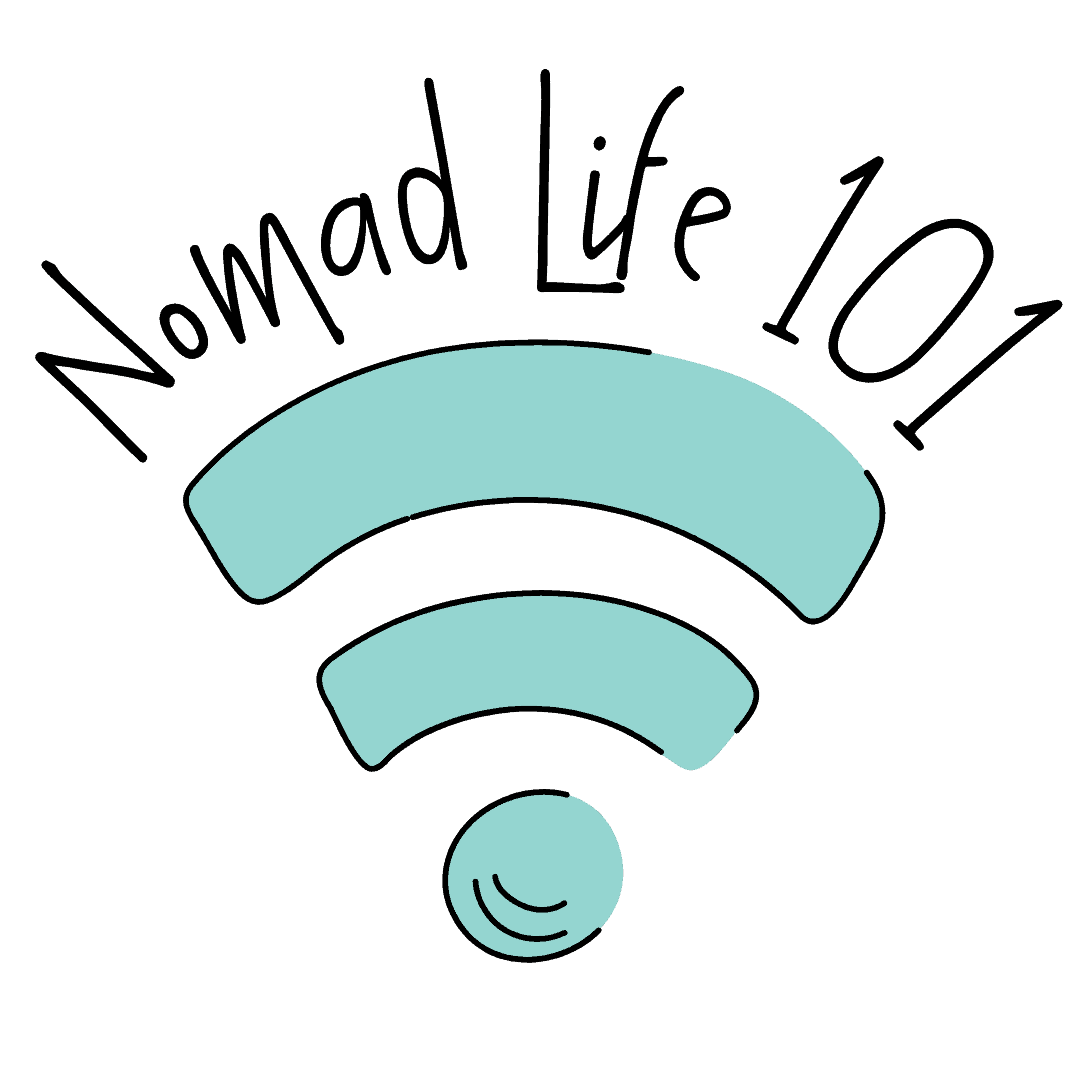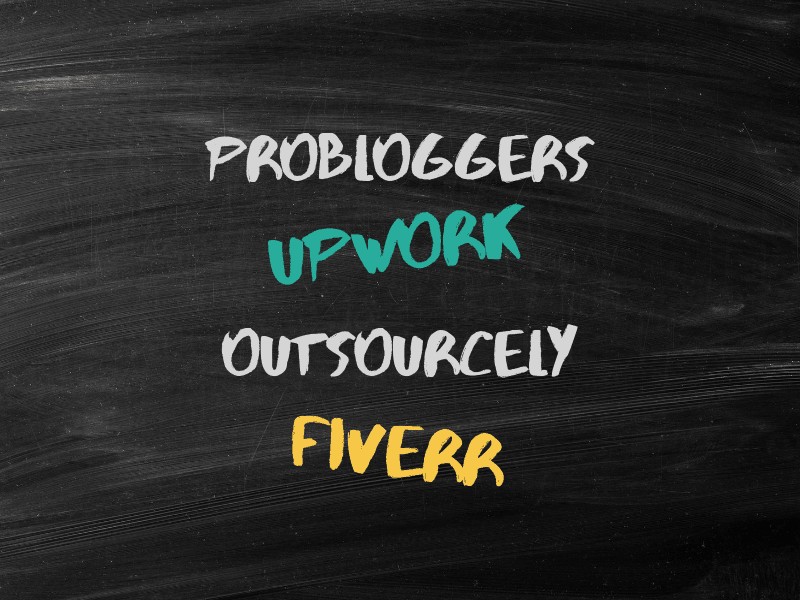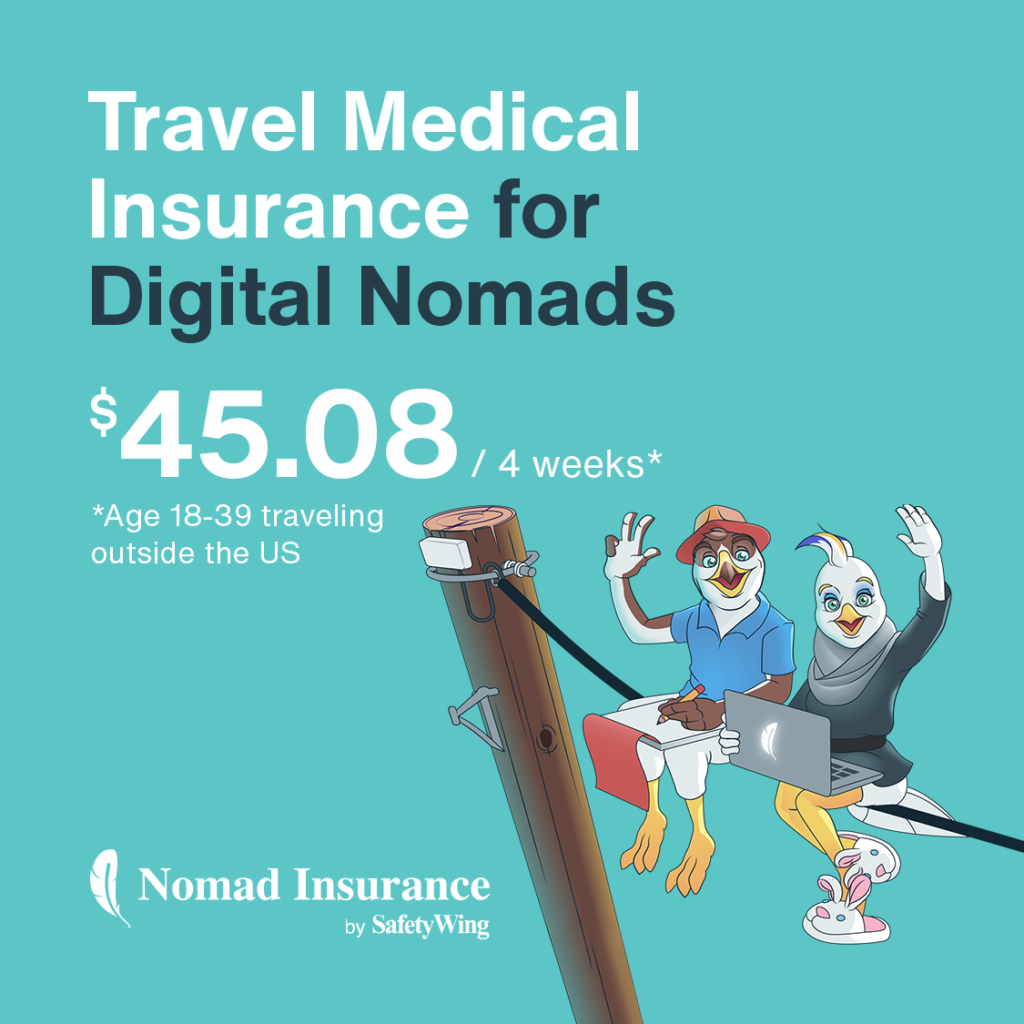What if you could become a freelancer online? If you’re thinking about becoming a digital nomad and you are interested in learning more about freelancing online, you’re going to love this article.
Finding freelancing jobs for beginners isn’t the easiest, but we all need to start somewhere.
In this post, you’ll find more information on what freelancing means as well as where to find freelance jobs online for beginners.
We will see some differences between remote work and freelancing and more importantly, we will take a look at the tips to land your first freelance gig.
This is a detailed guide to freelancing for beginners.
If you prefer videos, watch the video below for a summary of this article.
What’s a freelancer?
A freelancer refers to a person who sells services instead of working on a regular basis with one employer. The freelancer can charge fees per project, per month, per day, or per hour.
This system allows him to have more than one client and he can also diversify his sources of income/work.
What are the main differences between remote work and freelancing?
Remote work and freelancing can both be done remotely.
A remote position means you are likely to work for one employer with a certain number of tasks or hours to make. This also means you are going to have a regular wage without having to worry too much.
A freelancer can work for multiple clients, but there’s more freedom regarding hours and work. Depending on the situation, a freelancer can work as much as he wants/needs.
This also means they have to find their own clients to sell their services and it can be a bit of a rollercoaster when it comes to income.
What are freelance jobs?
Here’s a list of the most common jobs when it comes to freelancing:
- Writing
- Copywriting
- Virtual assistance
- Graphic design
- Voiceover
- Video editing
- Marketing
- Translating
- Editing/proofreading
- Online tutoring
- SEO
If you’re just starting out as a freelancer, you should know that some jobs are easier to get without experience.
The best freelancing jobs for beginners can be anything like virtual assistance, freelance writing, or social media managing.
Where to find freelance jobs online?
Finding freelancing gigs can be done in a few different ways. You can either consult websites that list freelance jobs, be active in Facebook groups, or build a network of people who trusts your services.
Your past customers could also talk about your services to their friends, and you could even offer a referral incentive.
In this section, we will divide the content into 4 sections to help you understand how to become a freelancer and, more importantly, how to find an online job as a freelancer.
I also invite you to read my story below to find out how I landed my first freelancing gigs and what I learned from it.
Freelance work websites
Some remote work websites also offer freelancing positions (contract), so you can also take a look at them; you could get lucky!
Otherwise, here are the best websites to consider for freelancers.
ProBlogger Jobs
When it comes to writing gigs, ProBlogger offers several options regularly for those who want to land a writing contract. Whether it’s for a blog content writing position or copywriting, there are many options.
Upwork
Upwork is a platform that connects companies and freelancers. Basically, the employer post a gig, and freelancers can send their quotes, including salary, hours, and pitch.
There’s a lot of competition on Upwork, but it’s a great place to start if you don’t have much experience.
Although, you should note two main things about Upwork:
- The competition is high – you will compete with people from all over the world, which means your competitors might charge less than you. You will have to find a way to stand out from the competition. I’d suggest reading Phoebe’s post because she has some good tips for Upwork.
- Upwork takes a percentage of your salary. Even though the platform is “free”, you’re paying a fee when you use the platform.
Outsourcely
Outsourcely is a platform that connects startups and freelancers. Some positions are full-time, so if you only have a certain number of free hours, make sure you apply for the right positions. You can find anything from tech gigs to design and writing.
Fiverr
Fiverr is a marketplace where freelancers advertise their services. You basically create a gig (an offer of your services), including prices and different packages. People will consult your gig, and they can make an order. Once you deliver the work, they will leave you a review, and they will, of course, pay you.
Fiverr is known for the “gig at $5” but it is more than that. You fix your own prices, so you can take a look at the competition and see what is a fair price according to your standards and your level of experience. You can charge more than $5, don’t worry.
At first, it can be hard to stand out on Fiverr. I suggest you look at the competition, create beautiful cover photos for your gigs, and be active to enhance your chance of getting your first order.
Facebook groups
Yes – you read that right – Facebook Groups are a great way to find work online. Some groups list jobs or opportunities to collaborate.
You can take a look at these two posts too to help you develop a network online:
Depending on your skills, you might want to join a Facebook Group that suits you. For example, if you are a virtual assistant, you should join groups that advertise jobs for VAs or groups that are made for VAs.
To find these groups, you can follow these steps:
- In the search bar, write “virtual assistant” (or the job you’re trying to get).
- Click on the “Groups” option to see only the groups related to the query.
- Join all the relevant groups and answer the questions if you need to. (Some groups ask questions to accept their members.)
- Look for variations – In this example, you could try VA next.
Being active in the groups chosen will allow you to get noticed. For example, if you take 10 minutes per day to comment and join the conversation, other members will notice that you are an active member.
When one of these members posts a job, they can recognize your name and choose you over another member.
Tip: If you see a job offer, make sure to apply for it as fast as you can. Make sure to build some form of rapport – you want them to like you because when someone likes you – they are more likely to hire you, or to buy your services.
Networking
Whether you build your network in an event or online – it is super important! As I mentioned in the Facebook section, networking makes you stand out when it comes to hiring.
Although, networking is much more than that!
I’ll give you two examples:
- You join a coworking space. If you participate in social events such as dinner parties, new member’s lunch, etc, you will likely meet other members. The day they will need to hire a copywriter or a graphic designer, they might be thinking of you. Why hiring a complete stranger when they could hire someone they know, someone they like.
- You completed a job and your client is happy with your work. You can tell them you are looking for more clients at some point. They can then recommend you to their own network. Word of mouth is an excellent way to get new clients.
Building your reputation
You won’t have a reputation when you are just starting out. This is why the networking option is essential.
You might have to put extra effort into finding clients to build your portfolio.
Here are my recommendations when it comes to building your online reputation:
- Make a website to advertise your services. You might not get traffic on it just yet, but you can use it to showcase your previous work and testimonials. Having a portfolio is a great way to get new clients. It’s quite rare that someone will give you a shot if you don’t have anything to show them.
- Add this website to your email signature. Every time you send an email, you’re advertising your website. Whether you’re emailing your uncle or a potential client, you’re putting yourself out there.
- Add this website to your Facebook profile (you can add it as your job) and make a Facebook page while you’re at it. This way, when you are active in a group, people can see your profile and click on your website/page. You can also ask your clients to leave you a review on your Facebook page. Or even leave a testimonial on your website.
- Join Linkedin. I personally don’t like Linkedin that much, but depending on your skills, it can get quite helpful. Whether you want to find a job or simply build your network, Linkedin can be a great place to start.
- If you don’t have any experience, you can send a pitch to your ideal client, request an internship, or offer to work for free. Why? This could simply help you build your portfolio so you have something to showcase to find an actual client. If you’re into writing, check out the options here.
How can a beginner start freelancing?
To start freelancing, you must decide what you want to focus on. Here’s how to start freelancing.
Do you already have a skill that you can sell? Or do you need to learn a skill? Nowadays, you can learn a lot from online tutorials, Youtube, or online courses.
If you already have skills, you can then look at the options mentioned above.
If you are a complete beginner, then, you can take a look at the digital nomad jobs here and decide what skill you want to learn.
Across our website, you’ll find plenty of information on how to get started as an online entrepreneur. You can read inspiring stories from fellow entrepreneurs and learn from their journey.
How to get your first job as a freelancer?
Some of us are lucky enough to find our first job without any experience. Let’s be honest, it’s super rare! I’ll tell you more about it in the next section, but, if you don’t have any experience, you might need to offer free work to get samples to showcase to your potential clients.
I see it as an investment in time – which will bring you money later.
After all, if you wore the “hiring shoes” here, would you hire someone without any previous experience?
When hiring a writer, the hirer wants to see writing samples.
When hiring a graphic designer, the hirer wants to see designs.
When hiring a digital marketer, the hirer wants to see examples of social media posts, some proofs of results, stats, etc.
You don’t have to work 40 hours for free – but just enough so you have something to put in your portfolio.
My story and what I learned from it
You might have seen bits and pieces of my story in different articles on this website. Well, let’s put them all together here.
I first started my own brand in 2015. My brand was a travel blog about long-term travel. Obviously, starting a brand takes time and money. You need to invest in your business, and more importantly, you need to invest a lot of time.
It can take time before you can monetize your brand. I had to start freelancing to support myself until my brand grew.
The following year, I joined Upwork and Fiverr, and I landed my first gig on Upwork. How? Well, having the blog and my own social media channels was showcasing a lot already. I was able to show my writing style, show my social media channels, and it was enough to land a gig.
My first gig was a virtual assistant position, mostly about creating graphics and social media posts.
My second gig was about managing three social media platforms.
Both offered me low wages, but I had little experience, and I knew I wasn’t experienced enough to ask for more. These were better than nothing, and it was a great start.
I decided to join Facebook groups for virtual assistants, and I decided to post on the wall. I said I was available for work and barely had any experience, so I was willing to accept a low wage. I mentioned my blog and my own social media channels. And I got lucky.
A blogger I had met that year decided to offer me a position as a social media manager. It wasn’t super paid – but it was, again, better than nothing. Once she realized I was good, she gave me more work and even recommended me to another blogger.
Over the years, I grew my personal brand (A Broken Backpack), and I decided to take fewer freelancing gigs. I concentrated on the ghostwriting ones (the ones I liked the most) and eventually stopped. My website made enough money, and I wanted to give it all my attention.
Until… someone recommended me for an SEO gig (and turns out that nowadays, SEO is my favorite thing to do). That same someone recommended me for another SEO gig too.
I landed two well-paid contracts, and even though I own a few websites, I still have time to freelance on the projects that I love.
So, what did I learn from all of this?
- You got to start somewhere. I spent a lot of time on my first gigs, but I needed to support myself abroad. I did what I had to do. It gave me referrals in the long run, and it gave me experience.
- Once I got more experience, this also helped me with my brand. Eventually, I was able to charge more. I even came to the point where I was able to say no. And that’s a good feeling, really. This meant I was in a position to choose the gigs I wanted to do.
- It’s quite challenging to juggle between personal brands and freelancing. Although I’m going to repeat myself here – I needed to support myself. Sometimes, freelancing is only a temporary way to support yourself until you start that business. If your financial situation is great, you can focus on your brand/business. But if that’s not the case, it’s a good cushion to have.
Final Thoughts On Freelancing For Beginners
Thankfully, you can learn more about the things you should know about freelancing before you start your journey. Because – freelancing isn’t for everyone!
Alternatively, if you wish to learn more about freelancing, read our post featuring the best books for freelancers.
Need more job inspiration? Take a look at these remote jobs instead:



